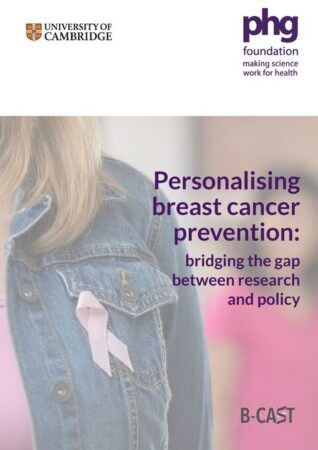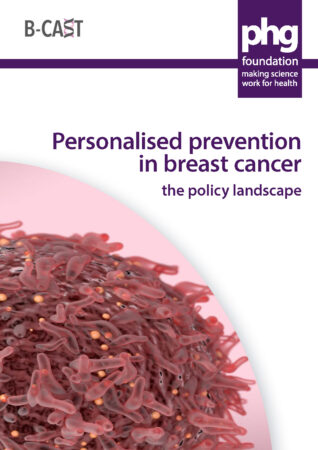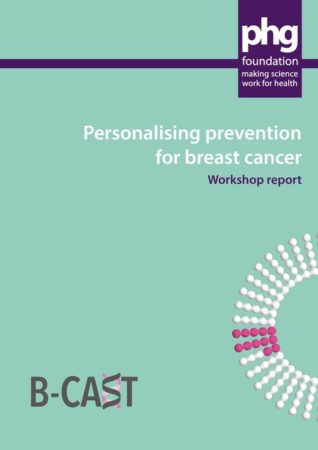Home Publications Reports Personalising breast cancer prevention – bridging the gap between research and policy
Personalising breast cancer prevention
Bridging the gap between research and policy
Breast cancer prevention is a focus of many major research programmes. The resulting knowledge is enabling greater accuracy in predicting who will develop breast cancer.
Models and tools for predicting the risk of developing breast cancer are well established for managing people with a family history of breast cancer. As they continue to evolve they are likely to be useful in other areas of clinical and public health practice.
However, the rate at which new knowledge emerges from research far outstrips the pace of innovation and the achievement of better, more personalised, healthcare for patients and the public.
Personalising breast cancer prevention – bridging the gap between research and policy sets out for policymakers, those working in health promotion, and healthcare providers a comprehensive overview of the rapidly advancing science underpinning breast cancer prevention.
In the report, we provide recommendations in relation to:
- Accelerating the use of new tools in preventing hereditary breast cancer
- The use of these tools in breast cancer prevention pathways
- Moving towards risk-stratified population screening
Read the executive summary
Read Personalising breast cancer prevention – bridging the gap between research and policy
Both are free to download
This work was funded by the EU as part of the B-CAST consortium
Personalising prevention for breast cancer – workshop report
PHG Foundation held a multidisciplinary workshop to look at likely future scientific and technological advances and create a vision for future personalised prevention in breast cancer and how it could be achieved. This report provides a summary of the workshop proceedings. Published 2019
Personalised prevention in breast cancer – the policy landscape
In this report we set out the results of our research and analysis of the discourse around personalised breast cancer prevention within public health and policy.



